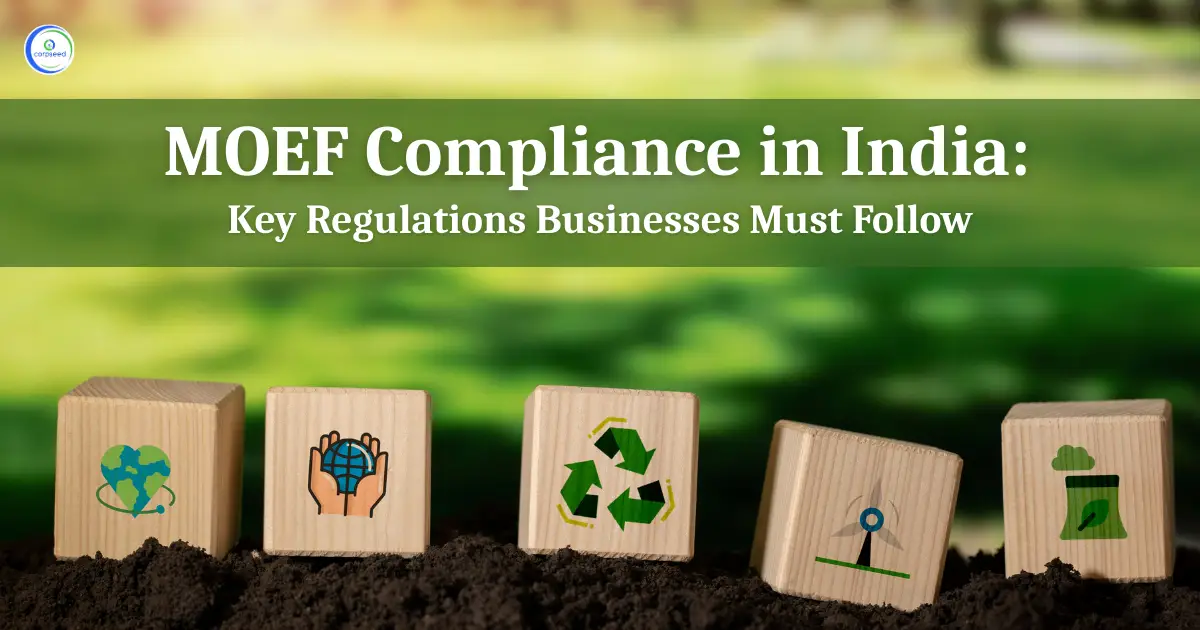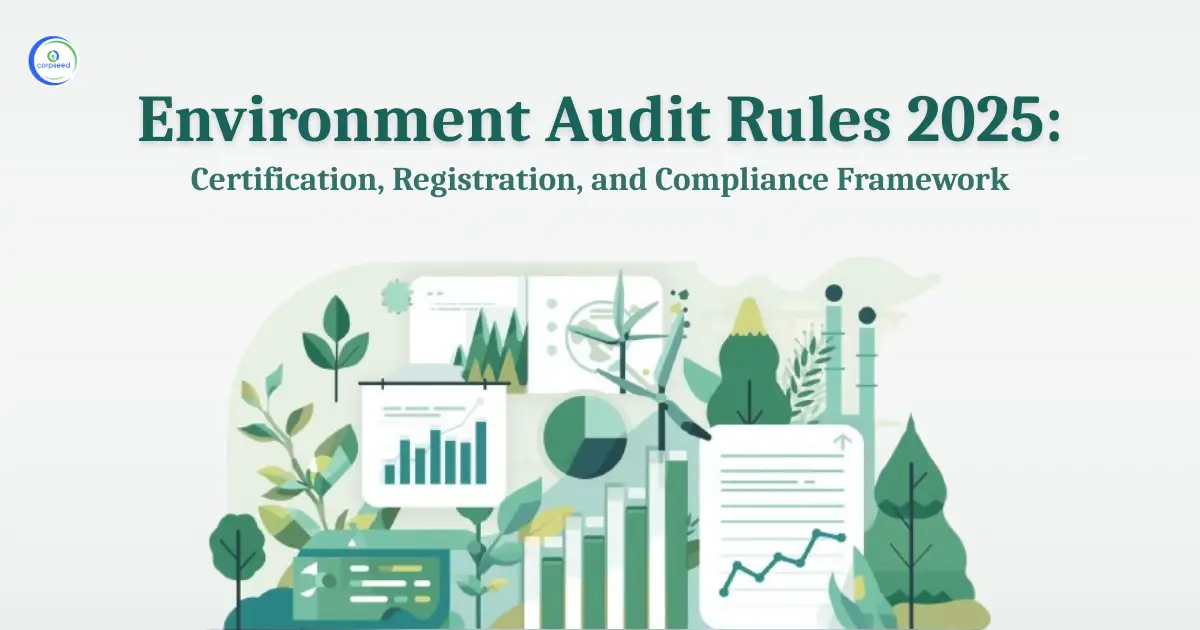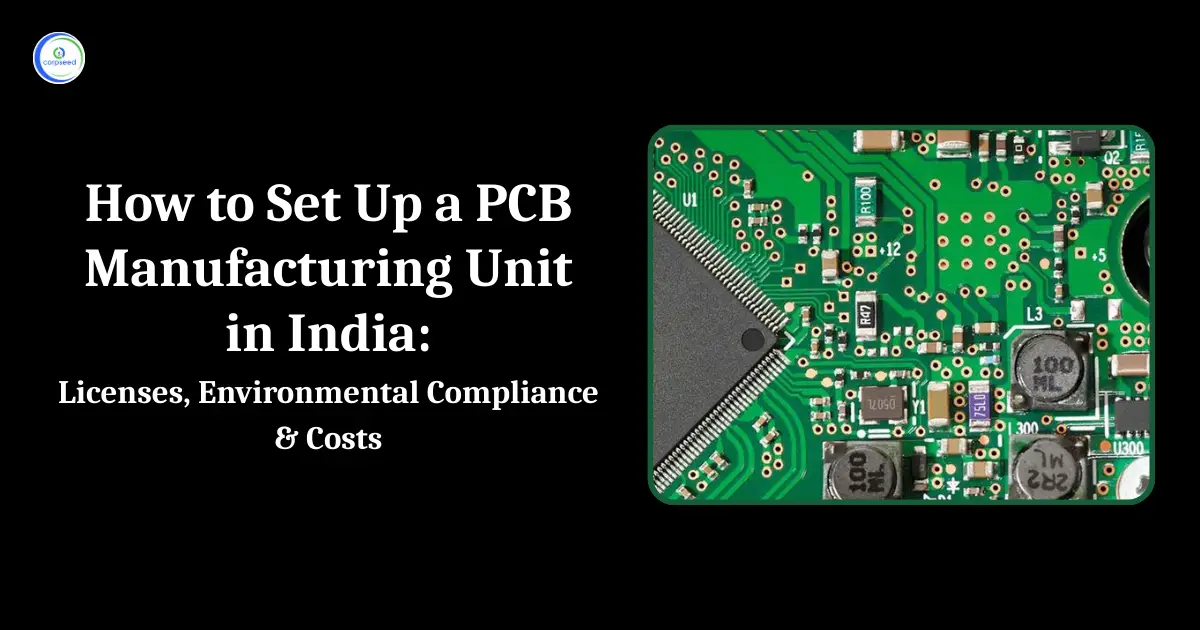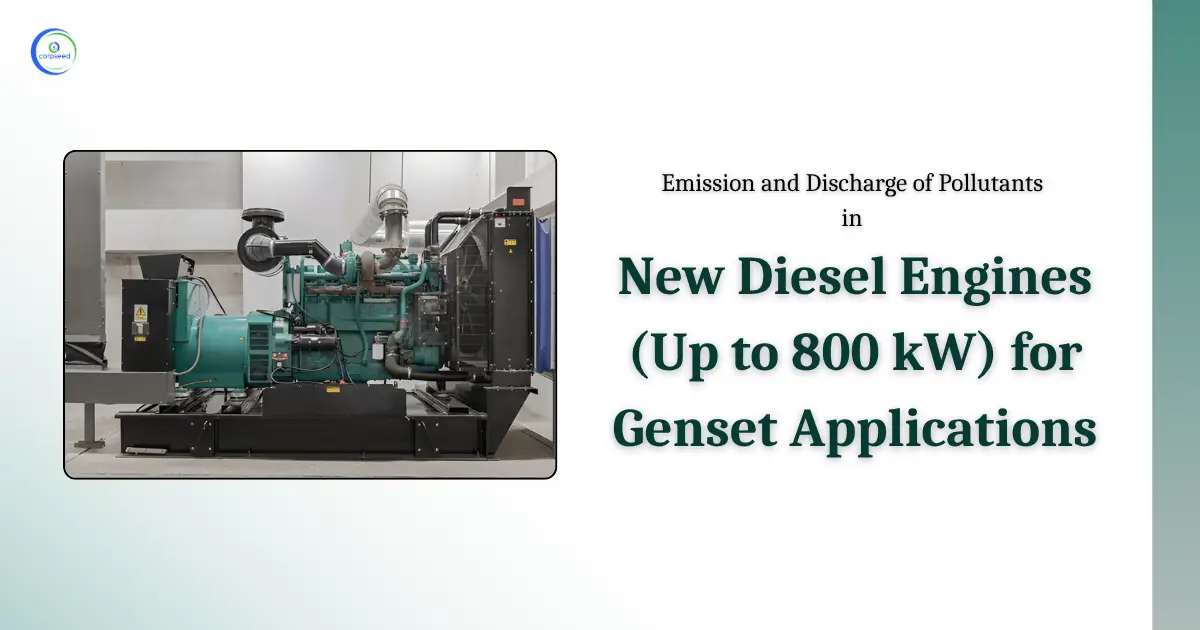The hotel industry plays an important role in the global economy, providing services ranging from accommodation to meals and entertainment. However, it also contributes to environmental pollution through waste generation, water use, energy consumption, and discharges. As concerns over climate change and sustainability develop, meeting emission standards for environmental pollutants in the hotel industry becomes necessary to ensure that environmental balance while ensuring compliance with national regulations.
Table of Contents
Understanding the Environmental Protection Rules, 1986
The Environment (Protection) Act, 1986, with its amendments, is the primary law governing environmental protection in India. It authorizes the central government to take essential measures to protect the environment and mitigate the adverse effects of industrial and commercial activities. Under this Act, the Environment (Protection) Rules, 1986, prescribes standards for the management of environmental pollutants, including those arising from the hotel industry.
In 2009, the Environment (Protection) Rules were amended to present stringent standards for the discharge of pollutants. These amendments, which came into effect after their publication in the Official Gazette, included the establishment of emission and effluent principles specific to numerous industries, including hotels. The Central Pollution Control Board (CPCB) and State Pollution Control Boards (SPCB) have been tasked with monitoring these emissions to ensure that hotels adhere with the prescribed limits.
--------------Blog Contact Form-------------
Environmental Pollutants from the Hotel Industry
Hotels, while providing necessary services to travellers, also generate a range of pollutants that contribute to environmental degradation. Some of the key pollutants include:
- Air Emissions: This is mostly due to the use of fossil fuels for cooking, heating and transportation on hotel premises. Carbon dioxide (CO2), nitrogen oxides (NOx), and particulate matter (PM) are common air pollutants from hotels.
- Water Discharge: Hotels use a large amount of water for daily activities. Wastewater from kitchens, laundry services, baths, and pools may comprise contaminants such as grease, detergents, and chemicals.
- Solid Waste: Hotels produce substantial amounts of solid waste, including food waste, plastic and paper products. If not properly managed, this waste can contaminate land and water resources.
- Noise Pollution: Extreme noise from hotel activities such as events, air conditioning systems, and construction can contribute to noise pollution, which impacts both hotel guests and surrounding communities.
- Chemical Pollution: The use of cleaning agents, pesticides, and other chemicals in hotel maintenance can cause the release of harmful substances into the environment.
Benefits of Emission Standards
Emission standards are important to ensure that hotels reduce their environmental impact. Compliance with these regulations not only helps reduce pollution but also provides several benefits:
- Legal Compliance: By complying with government-set emission standards, hotels avoid legal fines or penalties that can result from non-compliance with environmental laws.
- Enhanced Sustainability: Emission standards encourage hotels to adopt sustainable practices, such as energy-saving appliances and water-saving technologies, which contribute to more ecologically friendly operations.
- Cost Savings: By minimizing waste and instigating energy efficient practices, hotels can reduce long-term operational costs, such as energy bills and waste disposal fees.
- Improved Reputation: Hotels which adhere with environmental principles boost their credibility among environmentally conscious consumers, resulting in increased bookings and loyalty.
- Contribution to Environmental Protection: By controlling emissions and waste, hotels play an active role in mitigating climate change and keeping the environment safe for future generations.
Hotel Industry Emission Standards
Emission standards of hotels are usually stated in Environment (Protection) Rules and are examined by CPCB and SPCBs. These standards differ on the basis of the size of the hotel, its location and the type of its operations. For example, larger hotels may have to implement stricter air and water standards than smaller hotels.
- Air Quality Standards: Hotels are required to control the emissions of harmful gases such as CO2, NOx, and sulfur dioxide (SO2) from their kitchens and heating systems. Using cleaner fuels, like LPG or electricity, instead of coal or wood can help reduce air pollution.
- Water Quality Standards: Wastewater treatment systems should be in place to meet prescribed emission limits. It involves controlling the levels of suspended solids, chemical oxygen demand (COD) and biochemical oxygen demand (BOD) in wastewater.
- Solid Waste Management: Hotels must separate, recycle, or properly dispose of solid waste, ensuring that hazardous waste, such as batteries and chemicals, is managed properly.
- Noise Control: Hotels must maintain noise levels within permissible limits, especially during night time, to reduce disturbance to the surrounding environment.
- Chemical Use: Hotels are encouraged to use eco-friendly cleaning agents and chemicals that are biodegradable and less toxic to the environment.
| Sr. No. | Industry | Parameter | Standards | |
| "39 |
Hotel Industry |
Effluent Standards | ||
| (i)Hotel with at least 20 bedrooms | ||||
| limiting concentration in m , ex t for H | ||||
| Inland Surface Water | On land for Irrigation | |||
| 5.5-9.0 | 5.5-9.0 | |||
| BOD3 27 c | 30 | 100 | ||
| Total Suspended Solids | 50 | 100 | ||
| Oil & Grease | 10 | 10 | ||
| Phosphate as P | 1.0 | - | ||
| (ii)Hotel with less than 20 bedrooms or a Banquet Hall with minimum floor area of 100 m2 or a Restaurant with minimum seating capacity of 36 | ||||
| 5.5-9.0 | 5.5-9.0 | |||
| BOD3 27 | 100 | 100 | ||
| Total Sus ded Solids | 100 | 100 | ||
| Oil & Grease | 10 | 10 | ||
| Notes: Hotels, banquet halls, restaurants, etc. located in coastal area shall also comply with the provisions of the Coastal Regulation Zone, as applicable. ii. If, the effluent is discharged into a municipal sewer leading to a Sewage Treatment Plant, the hotel or restaurant or banquet hall, as the case may be, shall provide a proper Oil and Grease Trap for effluent arising from its kitchen and laundry and shall have to comply with the 'General Standards for Discharge of Environmental Pollutants Part-A: Effluents' notified under Schedule-VI.”. |
||||
Also Read: What are the Standards for Emission or Discharge of Environmental Pollutants for Stone Crushing Unit
Monitoring and Reporting
To ensure that hotels are adhering with emission standards, regular monitoring and reporting are essential. This process involves:
- Emission Testing: Hotels should periodically test air and water quality to evaluate the level of pollution being discharged. These tests are usually done by certified laboratories.
- Record-Keeping: Hotels should keep detailed records of their emissions and waste management practices. These records are subject to inspection by the CPCB and SPCB.
- Environmental Audits: An annual environmental audit helps hotels assess their environmental impact and identify areas for improvement. The audit may also be a requirement for certain hotels based on their size or location.
- Compliance Certification: Hotels may need to get an environmental compliance certificates from relevant authorities after demonstrating compliance to emission standards.
How Can Hotel Industry Comply with These Standards?
Hotels can take several steps to comply with environmental emission standards and mitigate their environmental footprint:
- Implement Energy-Efficient Solutions: Invest in energy-saving appliances, such as LED lighting, solar panels, and energy-efficient HVAC systems.
- Adopt Water Conservation Measures: Install water-saving fixtures, recycle wastewater, and educate staff and guests on the significance of water conservation.
- Waste Segregation and Recycling: Implement a strong waste management system that focuses on minimizing, recycling, and composting waste.
- Adopt Green Certification: Hotels can apply for green certifications, such as the Green Key or LEED certification, to determine their commitment to sustainable practices.
- Staff Training and Awareness: Train staff on environmental best practices, including waste management, energy conservation, and pollution control.
Conclusion
The hotel industry should adopt a proactive approach to environmental protection by following emission standards and implementing sustainable practices. By doing so, hotels not only conform to legal requirements but also play their part in keeping the environment safe for future generations. With the support of boards such as CPCB and SPCB, hotels can make a major impact in mitigating environmental pollution and forming a greener future. Emission standards are not just a regulatory necessity but a step towards a more sustainable, lower cost, and responsible hotel industry.
This portion of the site is for informational purposes only. The content is not legal advice. The statements and opinions are the expression of author, not corpseed, and have not been evaluated by corpseed for accuracy, completeness, or changes in the law.
BOOK A FREE CONSULTATION
Get help from an experienced legal adviser. Schedule your consultation at a time that works for you and it's absolutely FREE.


.webp)





_Corpseed.webp)
.webp)